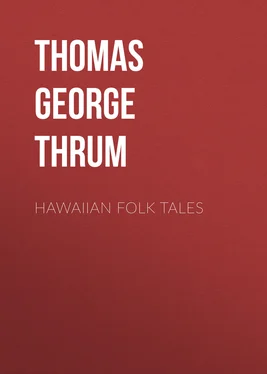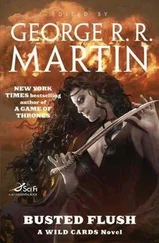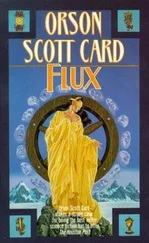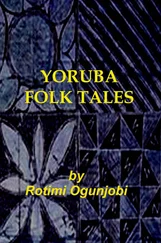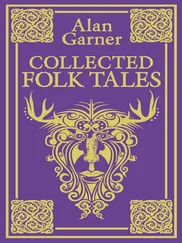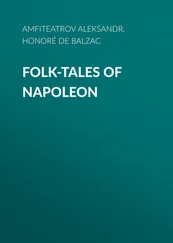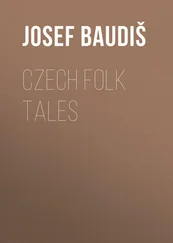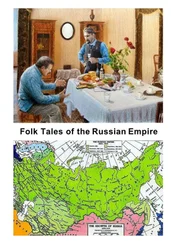Thomas George Thrum - Hawaiian Folk Tales
Здесь есть возможность читать онлайн «Thomas George Thrum - Hawaiian Folk Tales» — ознакомительный отрывок электронной книги совершенно бесплатно, а после прочтения отрывка купить полную версию. В некоторых случаях можно слушать аудио, скачать через торрент в формате fb2 и присутствует краткое содержание. Жанр: Старинная литература, foreign_antique, Сказка, на английском языке. Описание произведения, (предисловие) а так же отзывы посетителей доступны на портале библиотеки ЛибКат.
- Название:Hawaiian Folk Tales
- Автор:
- Жанр:
- Год:неизвестен
- ISBN:нет данных
- Рейтинг книги:4 / 5. Голосов: 1
-
Избранное:Добавить в избранное
- Отзывы:
-
Ваша оценка:
- 80
- 1
- 2
- 3
- 4
- 5
Hawaiian Folk Tales: краткое содержание, описание и аннотация
Предлагаем к чтению аннотацию, описание, краткое содержание или предисловие (зависит от того, что написал сам автор книги «Hawaiian Folk Tales»). Если вы не нашли необходимую информацию о книге — напишите в комментариях, мы постараемся отыскать её.
Hawaiian Folk Tales — читать онлайн ознакомительный отрывок
Ниже представлен текст книги, разбитый по страницам. Система сохранения места последней прочитанной страницы, позволяет с удобством читать онлайн бесплатно книгу «Hawaiian Folk Tales», без необходимости каждый раз заново искать на чём Вы остановились. Поставьте закладку, и сможете в любой момент перейти на страницу, на которой закончили чтение.
Интервал:
Закладка:
Highest antiquity is claimed for Hawaiian traditions in regard to events subsequent to the creation of man. “In one of the sacrificial hymns of the Marquesans, when human victims were offered, frequent allusions were made to ‘the red apples eaten in Naoau,’ … and to the ‘tabooed apples of Atea,’ as the cause of death, wars, pestilence, famine, and other calamities, only to be averted or atoned for by the sacrifice of human victims. The close connection between the Hawaiian and the Marquesan legends indicates a common origin, and that origin can be no other than that from which the Chaldean and Hebrew legends of sacred trees, disobedience, and fall also sprang.” In comparison of “the Hawaiian myth of Kanaloa as a fallen angel antagonistic to the great gods, as the spirit of evil and death in the world, the Hebrew legends are more vague and indefinite as to the existence of an evil principle. The serpent of Genesis, the Satan of Job, the Hillel of Isaiah, the dragon of the Apocalypse—all point, however, to the same underlying idea that the first cause of sin, death, evil, and calamities, was to be found in disobedience and revolt from God. They appear as disconnected scenes of a once grand drama that in olden times riveted the attention of mankind, and of which, strange to say, the clearest synopsis and the most coherent recollection are, so far, to be found in Polynesian traditions. It is probably in vain to inquire with whom the legend of an evil spirit and his operations in Heaven and on earth had its origin. Notwithstanding the apparent unity of design and remarkable coincidence in many points, yet the differences in coloring, detail, and presentation are too great to suppose the legend borrowed by one from either of the others. It probably descended to the Chaldeans, Polynesians, and Hebrews alike, from a source or people anterior to themselves, of whom history now is silent.”
II
Exploits of Maui
I.—Snaring the Sun
Maui was the son of Hina-lau-ae and Hina, and they dwelt at a place called Makalia, above Kahakuloa, on West Maui. Now, his mother Hina made kapas. And as she spread them out to dry, the days were so short that she was put to great trouble and labor in hanging them out and taking them in day after day until they were dry. Maui, seeing this, was filled with pity for her, for the days were so short that, no sooner had she got her kapas all spread out to dry, than the Sun went down, and she had to take them in again. So he determined to make the Sun go slower. He first went to Wailohi, in Hamakua, on East Maui, to observe the motions of the Sun. There he saw that it rose toward Hana. He then went up on Haleakala, and saw that the Sun in its course came directly over that mountain. He then went home again, and after a few days went to a place called Paeloko, at Waihee. There he cut down all the cocoanut-trees, and gathered the fibre of the cocoanut husks in great quantity. This he manufactured into strong cord. One Moemoe, seeing this, said tauntingly to him: “Thou wilt never catch the Sun. Thou art an idle nobody.”
Maui answered: “When I conquer my enemy, and my desire is attained, I will be your death.” So he went up Haleakala again, taking his cord with him. And when the Sun arose above where he was stationed, he prepared a noose of the cord and, casting it, snared one of the Sun’s larger beams and broke it off. And thus he snared and broke off, one after another, all the strong rays of the Sun.
Then shouted he exultingly: “Thou art my captive, and now I will kill thee for thy going so swiftly.”
And the Sun said: “Let me live, and thou shalt see me go more slowly hereafter. Behold, hast thou not broken off all my strong legs, and left me only the weak ones?”
So the agreement was made, and Maui permitted the Sun to pursue its course, and from that time on it went more slowly; and that is the reason why the days are longer at one season of the year than at another. It was this that gave the name to that mountain, which should properly be called Alehe-ka-la (sun snarer), and not Haleakala.
When Maui returned from this exploit, he went to find Moemoe, who had reviled him. But that individual was not at home. He went on in his pursuit till he came upon him at a place called Kawaiopilopilo, on the shore to the eastward of the black rock called Kekaa, north of Lahaina. Moemoe dodged him up hill and down, until at last Maui, growing wroth, leaped upon and slew the fugitive. And the dead body was transformed into a long rock, which is there to this day, by the side of the road.
II.—The Origin of Fire
Maui and Hina dwelt together, and to them were born four sons, whose names were Maui-mua, Maui-hope, Maui-kiikii, and Maui-o-ka-lana. These four were fishermen. One morning, just as the edge of the Sun lifted itself up, Maui-mua roused his brethren to go fishing. So they launched their canoe from the beach at Kaupo, on the island of Maui, where they were dwelling, and proceeded to the fishing ground. Having arrived there, they were beginning to fish, when Maui-o-ka-lana saw the light of a fire on the shore they had left, and said to his brethren: “Behold, there is a fire burning. Whose can this fire be?”
And they answered: “Whose, indeed? Let us return to the shore, that we may get our food cooked; but first let us get some fish.”
So, after they had obtained some fish, they turned toward the shore; and when the canoe touched the beach Maui-mua leaped ashore and ran toward the spot where the fire had been burning. Now, the curly-tailed alae (mud-hens) were the keepers of the fire; and when they saw him coming they scratched the fire out and flew away. Maui-mua was defeated, and returned to the house to his brethren.
Then said they to him: “How about the fire?”
“How, indeed?” he answered. “When I got there, behold, there was no fire; it was out. I supposed some man had the fire, and behold, it was not so; the alae are the proprietors of the fire, and our bananas are all stolen.”
When they heard that, they were filled with anger, and decided not to go fishing again, but to wait for the next appearance of the fire. But after many days had passed without their seeing the fire, they went fishing again, and behold, there was the fire! And so they were continually tantalized. Only when they were out fishing would the fire appear, and when they returned they could not find it.
This was the way of it. The curly-tailed alae knew that Maui and Hina had only these four sons, and if any of them stayed on shore to watch the fire while the others were out in the canoe the alae knew it by counting those in the canoe, and would not light the fire. Only when they could count four men in the canoe would they light the fire. So Maui-mua thought it over, and said to his brethren: “To-morrow morning do you go fishing, and I will stay ashore. But do you take the calabash and dress it in kapa, and put it in my place in the canoe, and then go out to fish.”
They did so, and when they went out to fish the next morning, the alae counted and saw four figures in the canoe, and then they lit the fire and put the bananas on to roast. Before they were fully baked one of the alae cried out: “Our dish is cooked! Behold, Hina has a smart son.”
And with that, Maui-mua, who had stolen close to them unperceived, leaped forward, seized the curly-tailed alae and exclaimed: “Now I will kill you, you scamp of an alae! Behold, it is you who are keeping the fire from us. I will be the death of you for this.”
Then answered the alae: “If you kill me the secret dies with me, and you won’t get the fire.” As Maui-mua began to wring its neck, the alae again spoke, and said: “Let me live, and you shall have the fire.”
Читать дальшеИнтервал:
Закладка:
Похожие книги на «Hawaiian Folk Tales»
Представляем Вашему вниманию похожие книги на «Hawaiian Folk Tales» списком для выбора. Мы отобрали схожую по названию и смыслу литературу в надежде предоставить читателям больше вариантов отыскать новые, интересные, ещё непрочитанные произведения.
Обсуждение, отзывы о книге «Hawaiian Folk Tales» и просто собственные мнения читателей. Оставьте ваши комментарии, напишите, что Вы думаете о произведении, его смысле или главных героях. Укажите что конкретно понравилось, а что нет, и почему Вы так считаете.
